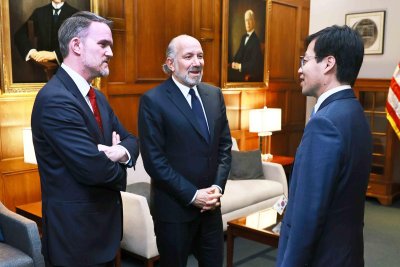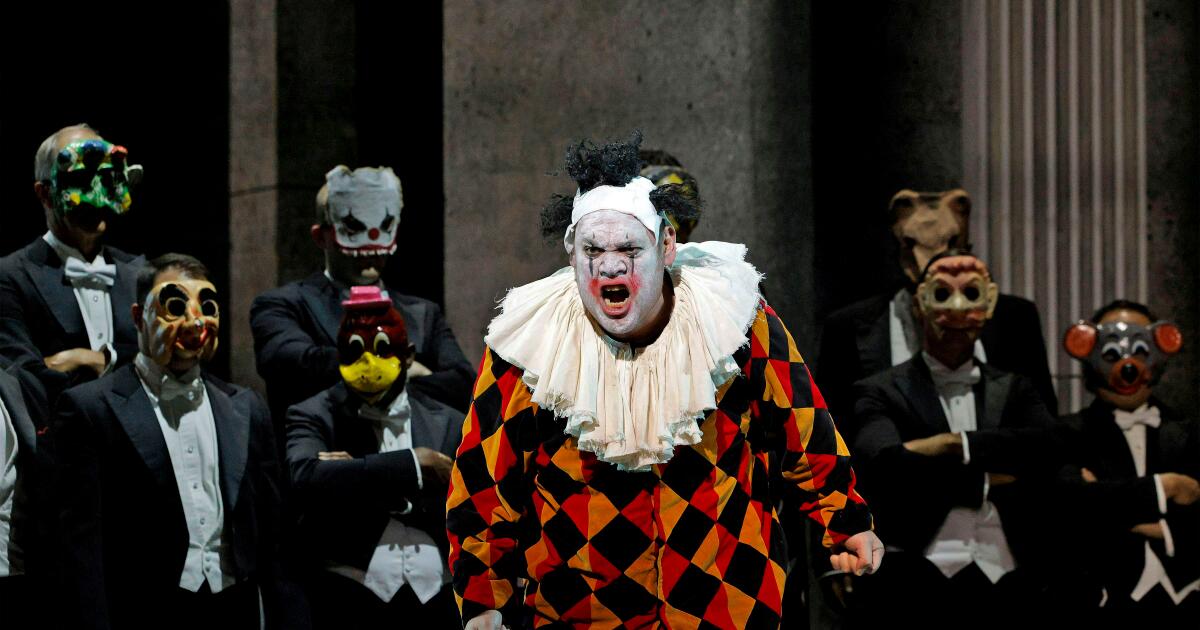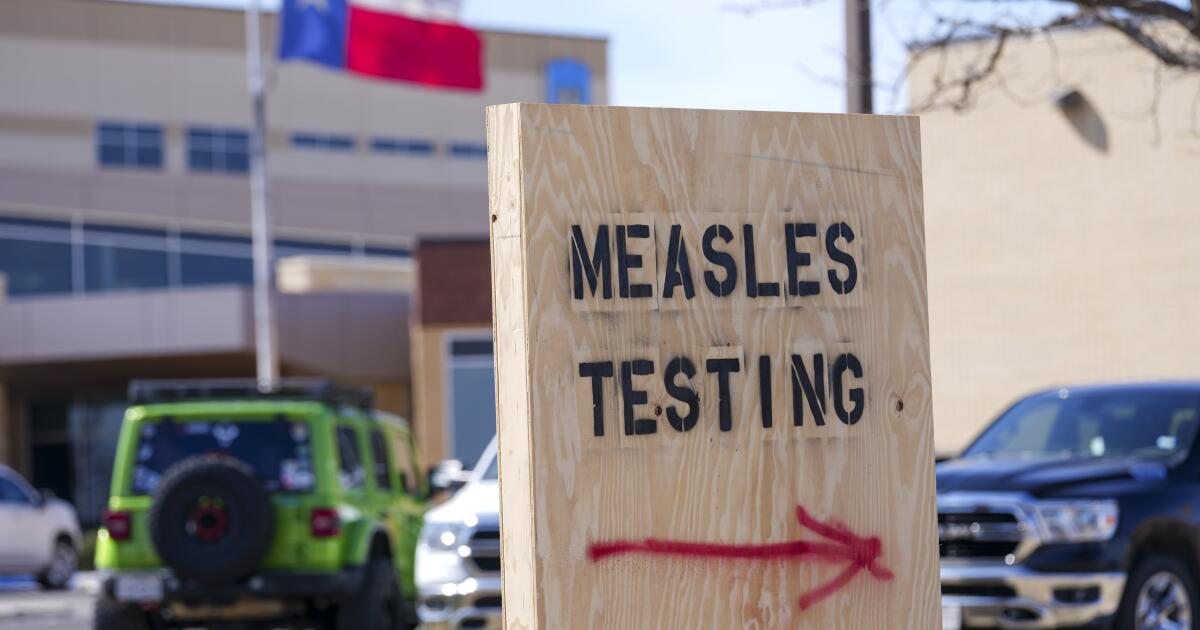South Korea requests tariff exemptions in U.S. trade talks

South Korea’s chief trade negotiator Yeo Han-koo (R) met with U.S. Commerce Secretary Howard Lutnick (C) and U.S. Trade Representative Jamieson Greer in Washington on Monday. Photo courtesy of South Korea Ministry of Trade, Industry and Energy
SEOUL, June 24 (UPI) — South Korea has asked to be exempted from all U.S. reciprocal and product-specific tariffs at the first high-level talks under the new administration of President Lee Jae Myung, Seoul’s Trade Ministry said Tuesday.
Chief trade negotiator Yeo Han-koo held talks with U.S. Commerce Secretary Howard Lutnick and U.S. Trade Representative Jamieson Greer in Washington on Monday.
During the meeting, Yeo “emphasized the importance of gaining exemption from reciprocal tariffs and product tariffs, such as automobiles and steel, and reaffirmed the will of both sides to reach a mutually beneficial agreement as soon as possible,” the ministry said in a press release.
South Korea is facing 25% tariffs threatened by U.S. President Donald Trump as part of his sweeping package of “Liberation Day” trade measures. Trump announced the tariffs in April but quickly put their implementation on hold for 90 days — a deadline that is approaching on July 8.
Tariffs on steel and automobiles, two key industries in South Korea, are already in place.
Yeo told the U.S. side that tariff talks had been limited by political turmoil and a leadership vacuum in South Korea over the past several months, the ministry said. President Lee took office earlier this month in a snap election precipitated by former President Yoon Suk Yeol’s botched martial law attempt in December.
“Now that the new government has secured democratic legitimacy and mandate, there is an opportunity to advance full-scale negotiations,” Yeo said, according to the ministry.
He also stressed that the ongoing negotiations are not only about tariffs, but also aim to foster strategic cooperation across various manufacturing sectors.
“South Korea and the United States have closely linked industrial supply chains and require mutual cooperation, so we will work to establish a new framework for the manufacturing partnership between the two countries through these negotiations,” Yeo said.
The uncertain trade environment has shaken the export-dependent Asian powerhouse, which saw its economy unexpectedly shrink in the first quarter of the year.
In late May, the Bank of Korea lowered its GDP growth forecast for 2025 from 1.5% in February to 0.8%, citing a slow recovery in domestic demand and the expected impact of U.S. tariffs. At the same time, the central bank cut its benchmark interest rate for the fourth time since October, lowering it by a quarter percentage point to 2.5%.
Since taking office, President Lee has pledged to boost economic growth and support people’s livelihoods through fiscal stimulus and other policy measures.
Last week, the government announced a second supplementary budget worth more than $14.7 billion, which will include cash handouts, debt relief measures and investments in sectors such as construction and artificial intelligence.
The move follows a $10.1 billion package that was approved by parliament last month.
On Monday, Lee directed government ministries to address the economic fallout from the ongoing Middle East crisis, including adding measures to the upcoming supplementary budget, if necessary.


